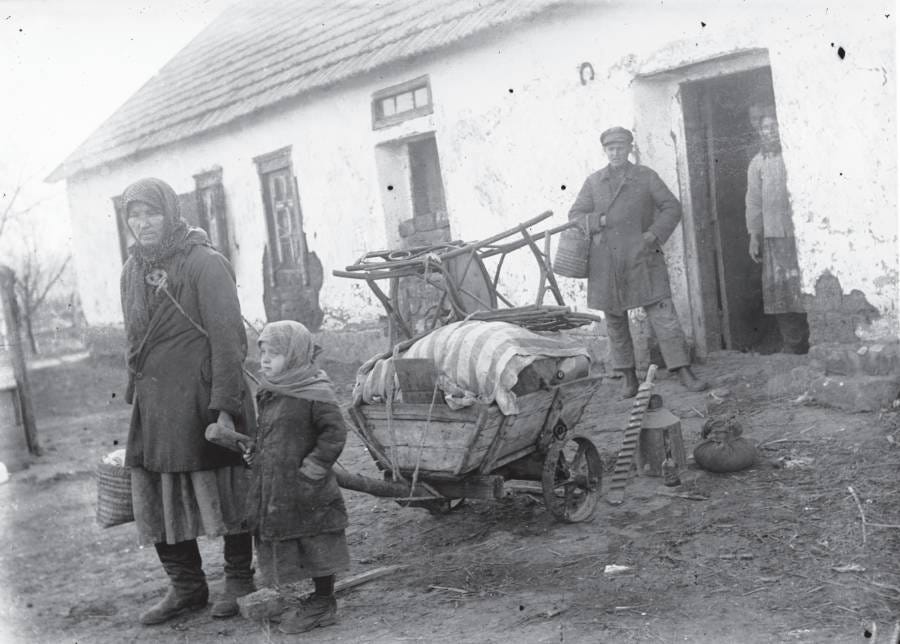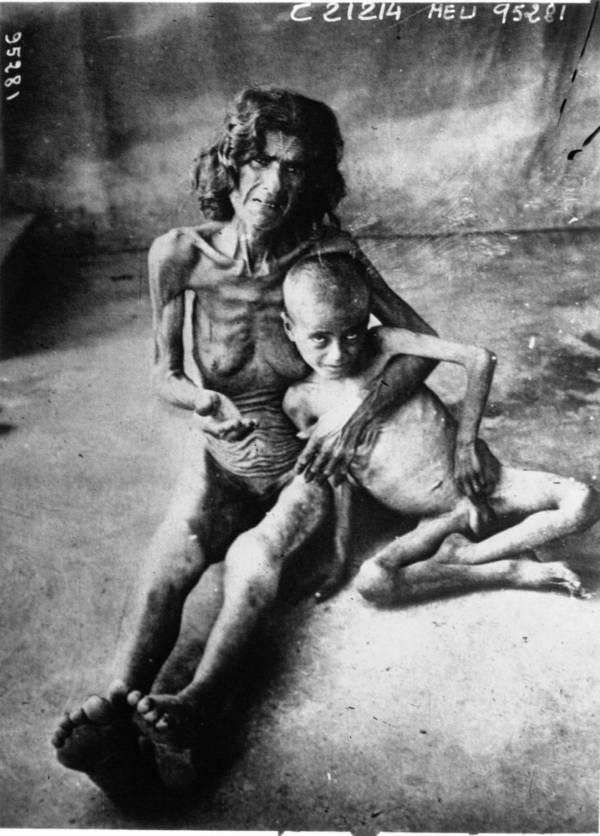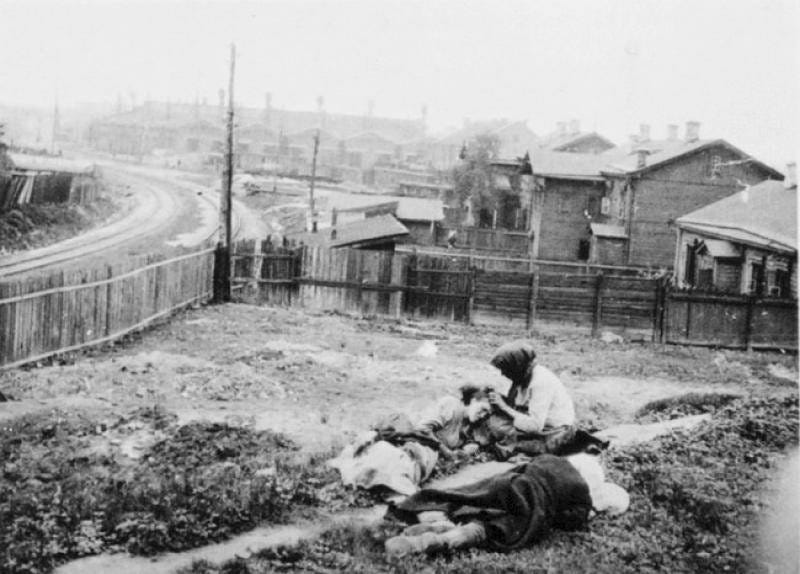The Forgotten Holocaust of Ukraine
Letters from O'Brien #8
Dear Winston,
As everyones attention continues to be fixated on Ukraine, I wanted to take this opportunity to write a short letter to shine a light on a historical event that remain relatively unknown to many.
HOLODOMOR
To keep a long and complex history short and too the point; under Soviet rule, the Ukrainian people would suffer a number of harsh seasons, but none would be as terrible as the harvest season from 1932-1933. A massive famine would sweep across the region, taking anywhere from 4.5 to 8 million lives, with some reports claiming as high as 9 million dead, not to mention the millions more forced to suffer through this. Originally believed to have been a natural famine, it was soon exposed to be a man made starvation plan, with none other than Stalin behind it.
Despite the incredible number of causalities, this man made famine has never received widespread attention - or even acknowledgement - outside of Ukraine. With the west now supposedly standing behind Ukraine, why is this terrible period in history still being ignored? Everyone seems so eager to back a nation which most could not point out on a map up until a month ago, so why not turn some attention to this historical tragedy? Perhaps it is because the fault of this famine lay at the feet of Marxism… Regardless, we should all be aware of this.
IGNORED BY THE WORLD
An event as massive as this should surely have received global attention, but in actuality it was deliberately ignored by the press, and much of the public in the western world chose to wipe what little they had heard of these ‘rumours’ of a man made famine out of their heads.
Despite its large scale effects, what was happening within The Ukraine was covered by few. The most well known was New York Times journalist Walter Duranty - an open Communist and supporter of Stalin - who worked out of Russia. He wrote in favour of socialist ideas - particularly Marxist-Leninist and Stalinist policies which were being put to work in the Soviet Union. His political bias was obvious, but this didn’t stop him from being regarded as an ‘outstanding journalist’, receiving a Pulitzer Prize (which has never been revoked to this day).
This blind faithfulness to the socialist idea was echoed throughout the West. During the interwar period, both France and England were heavily in favour of socialist ideologies. France is still open about this, but you’d be hard pressed to find much about Englands embarrassing (to say the least) affair with Marxist ideas throughout the twenties and thirties. The English political sphere was dominated by those in open support of the so-called ‘socialist experiment’ in Russia, and writers such as Duranty filled the average Brits mind with a false belief that the Soviet Union was a workers paradise - everything else therefor had to be a lie.
It is worth mentioning that for England, this absurd legitimisation of Marxist ideas in the political sphere would result in police and military disarmament, and eventually calls to disband the Royal Air Force. Thankfully, this ridiculous idea was put on hold, and just a few years later, Englands small and poorly equipped Air Force would take to the skies as the only real defence against a Nazi invasion (operation Sea Lion). It is no lie that these ideas almost cost England its existence.
When it came to the crimes of the Soviets, the public and the politicians were all too willing to silence voices highlighting the shortcomings of the communist system, labelling criticism as ‘lies’ and ‘anti-communist propaganda’. Those who highlighted the brutal violence of the Bolshevik revolution a decade earlier were censored, and so too would be skeptics of the famine. The famine in Ukraine would be presented to the west as the result of a ‘bad harvest’. This was untrue, in fact the harvest in 1932 supposedly saw excess crop yields. Other lies were pushed (some ran counter to the official narrative) including the rumour that Kulaks were killing livestock and burning their fields en masse in order to avoid collectivisation. The belief within communist circles was that the Soviets were actually trying to help the Ukrainians, but the money hungry kulaks would continually monopolise on food shortages in order to raise profit margins on their products. This supposedly justified the Soviet mass killing of the kulak population, and explained the unfortunate case of Ukraine.
In actuality, the amount of farmers burning off crops in opposition to the Soviet occupation was low, and primarily reported in 1928-1930. These few extreme cases were further amplified by Soviet propaganda to justify what was essentially genocide against them, and certainly did not represent what was happening across the country.
Despite this abundance of confusion and support for the USSR, two voices would end up shedding light on the horrors of Stalins regime in Ukraine. The first was Gareth Jones, a Welsh writer who traveled to Moscow before heading south to see Ukraine first hand. In Moscow, Jones would meet with Duranty personally, and ask him about the situation, to which Duranty would respond with only lies from the Kremlin. Despite this, he decided to head to Ukraine against the will of the Soviet government. Upon arriving, Jones witnessed the actuality of the scenario; forced collectivisation by Soviets, violence against the population, people eating dogs and deceased humans, posters telling parents it is ‘wrong to eat your children’, and even a report (perhaps not from Jones) of a group of children eating another half conscious child.
After a risky escape from the Soviet Union, Jones would attempt to spread the word.
Meanwhile, another journalist - Malcolm Muggeridge - had traveled to live in the Soviet Union. Arriving as an avid supporter of communism, Muggeridge eventually stumbled upon the Ukraine rumours, and decided to do further digging. What he discovered turned him from a supporter of communism into a forceful critic of the idea. Witnessing the same dreadful reality as Jones, Muggeridge would also attempt to spread the word in the UK and United States.
Both would reveal that there was not a shortage of food, but that the Soviets were deliberately and forcefully taking grain from the Ukrainian people in order to crush their resistance to collectivisation. Imports were blocked to the country, and emigration was suspended. Collectivisation quotas had to be met, or property would be seized. This was further backed up with laws in Ukraine forbidding the possession of anything down to singular grains of rice, with the penalty being capital punishment - usually deportation to labour camps. While the English public would ignore Jones and Muggeridge, and the press (including Duranty) would attempt to cover over the famine with more lies, I believe these two men (and any others who reported on the actual scenario) are heroes for their willingness to speak the truth while the world did nothing.
UKRAINES SUFFERING
For all those who claim to be supporters of Ukraine, why do we continue to ignore one of the greatest massacres in human history? With millions dead, and millions more suffering, this disastrous period in Ukrainian history should be known across the world. Young people should learn of this to the same extent that we learn of the Holocaust. We have set aside reality in favour of bias towards socialist ideas for long enough. It is time the world learns of the horrors of history - regardless of ideology.
Yours,
O’Brien







Thank you, Winston and O'Brien, for bringing this to our attention. The Holodomor should be incanted like poor Hodor in our very own real-world Game of Thrones: "Holodomor, Holodomor..." The depth of suffering is avoided by most as it is too much to bear. Far easier, lazier, safer, to sit back and watch Netflix. No wait, Mr Jones is on. Those poor Ukrainians. Whatever next? More wine, dear?
Sometimes words fail me. What does one say after reading a of yet another horror story of inflicted misery and crimes against a population?
https://youtu.be/cPkChi1ckq0